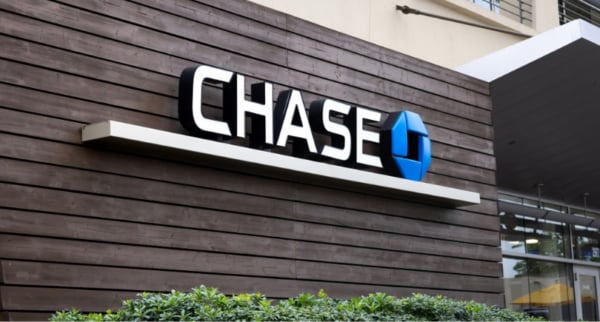Chase Freedom Rise® review
Start building credit while earning cash back on all purchases. Cash back rewards do not expire as long as your account is open and there is no minimum to redeem for cash back.
Jump to Section
card_name
- Rewards
- points_per_dollar
- Welcome Bonus
- bonus_miles bonus_miles_disclaimer
- Annual Fee
- annual_fees
Key Features
descriptionEditor Analysis:
- Start building credit while earning 1.5% cash back on all purchases (cash back rewards do not expire as long as your account is open and there is no minimum to redeem for cash back).
- Earn a $25 statement credit after signing up for automatic payments within the first three months of opening your account.
- In six months, you'll be evaluated for a credit line increase.
- This card is designed for people new to credit - not people with bad credit. If you already have existing credit you're trying to work on, this probably isn't the best card for you.
Who is the card_name card a good fit for?
The card_name card is a credit card designed for people who are new to the world of credit. So college students would be a good fit, but also just about anyone who is looking for their first credit card. This is the type of credit card that is sometimes described as a "credit builder card." But unlike a lot of credit builder cards, this isn’t a secured credit card. It’s unsecured, so you don’t have to pay any money to open an account. You just probably won’t get a huge credit limit if you are approved.
How to increase your card_name approval chances
Chase, on their website, makes it clear that if you’re a student or otherwise new to credit cards and you first open a Chase checking or savings account and keep it open for at least three days with a minimum of $250 in deposits in the account, that "may improve" your chances of being approved for card_name.
The words "may improve" is not exactly a guarantee, of course, and you could wind up with a new checking account, but no new credit card. Still, if you need a new bank account anyway, it may be worth considering.
Other than that, you want to make sure you are maintaining good financial habits. If you’re new to credit, and you end up with a bunch of debts in collections, that’s a sure-fire way to get a credit card company to not approve you for a credit card.
card_name benefits
Some of the top benefits of the card_name include:
- Earn 1.5% cash back on all purchases.
- Enroll in automatic payments (you pick the date and dollar amount) within the first three months of opening your account, and you’ll earn a $25 statement credit.
- No annual fee.
- Perks such as trip cancellation/interruption insurance (up to $1,500 per person and $6,000 per trip) for qualified events that prevent travel (provided you’ve booked the event with your card_name card).
- In six months, you’ll be evaluated for a credit line increase (this is fairly standard, but if you’re looking to build credit, it’s worth knowing).
- You’ll be provided with your credit score for free (also pretty standard these days, but if you’re trying to build credit, you’ll be able to easily monitor your score as you travel on your credit card journey).
- Perks, like discounts, from select Chase partners such as Lyft rides, Instacart and DoorDash.
card_name credit limit increase
In six months, you’ll be evaluated for a credit line increase (this is fairly standard, but if you’re looking to build credit, it’s worth knowing). Assuming you’ve been maintaining good financial habits, such as making payments on time, and especially if you’ve making those payments in full, logic would suggest you’ll have a good chance of getting a credit line increase. That said, everybody’s financial situation is different, and so it’s impossible to say for sure.
How do cardholders rate the CardName?
CardRatings commissioned Slice MR in November 2024 to survey 1,666 cardholders nationwide. Responses were given on a scale of 1-10 and respondents’ ratings were then averaged under broad topics. Here are the results for the CardName:
| Cost Effectiveness | 7.90 |
| Rewards Satisfaction | 7.73 |
| Customer Service | 7.39 |
| Website/App Usability | 7.90 |
| Likehood of Continuing to Use | 8.02 |
| Recommend to a Friend/Colleague | 7.67 |
| Overall Rating | 7.83 |
Survey results by question
Respondents rated their personal experience with the card_name, answering questions on a scale from 1-10. The results for each question can be found below:
How does the card_name compare to other cards?
card_name vs. card_name
discontinued_disclaimer
card_name is a credit builder card for people who are new to the world of credit; card_name is aimed at the cardholder who has been around for a while. That said, there are a fair amount of similarities. For instance, both cards have no annual fee, and each card specializes in offering 1.5% on all purchases.
That said, the card_name goes a little further, offering 5% cash back on travel purchased through Chase Travel℠, our premier rewards program that lets you redeem rewards for cash back, travel, gift cards and more; 3% cash back on drugstore purchases and dining at restaurants, including takeout and eligible delivery service; and 1.5% on all other purchases.
So, if you already have established credit and your credit score is pretty good, the card_name card is a nice option to consider.
card_name vs. card_name
discontinued_disclaimer
Both the card_name and the card_name cards are similar in one way – they aren’t aimed at somebody who has excellent credit. card_name is marketed to people new to credit, and card_name is aimed at people who have fair credit – so they may be an experienced credit card user, but perhaps their credit score has been banged up over the years.
There’s also another big distinction, one that may keep people who are new to credit leaning toward the card_name card and away from card_name: it has an annual fee.
Now, as annual fees go, it isn’t high — annual_fees. So if you have fair credit, and you otherwise like the card, you shouldn’t feel like a chump for paying the annual fee. You’ll presumably make the annual_fees back as you start earning rewards. card_name offers an unlimited 1.5% cash back on every purchase, every day (just like the card_name).
Is card_name a good card?
Yes, for those new to credit, the card_name is a good option to consider. It has no annual fee and earns rewards on purchases, and after six months of opening an account, cardholders will be evaluated for a credit line increase. So even if you open an account and don’t first get the credit limit you want, with responsible use you could see that increase in a relatively short timespan.
Frequently asked questions
Do card_name points expire?
What credit score do you need with card_name?
How long does it take to move from card_name to Sapphire Preferred?
What benefits does Freedom Unlimited have vs. card_name?
Our Methodology
Survey methodology: CardRatings commissioned Slice MR in November 2024 to survey 1,666 cardholders nationwide. CardRatings’ website analytics from Jan. 1, 2024-Oct. 31, 2024 were used to determine a selection of the most popular cards. Responses to 10 questions were given on a scale of 1-10. For nine of these questions, respondents’ scores were averaged under broad topics. The overall rating represents an average of respondents’ responses to their overall rating of each card.
Disclaimer:The information in this article is believed to be accurate as of the date it was written. Please keep in mind that credit card offers change frequently. Therefore, we cannot guarantee the accuracy of the information in this article. Reasonable efforts are made to maintain accurate information. See the online credit card application for full terms and conditions on offers and rewards. Please verify all terms and conditions of any credit card prior to applying.
This content is not provided by any company mentioned in this article. Any opinions, analyses, reviews or recommendations expressed here are those of the author’s alone, and have not been reviewed, approved or otherwise endorsed by any such company. CardRatings.com does not review every company or every offer available on the market.










